The government presented its financial and other plans for 2018 this evening.
Highlighting the success story of the Labour government in the last four years, which led to a resounding victory in the June election, Finance Minister Edward Scicluna said the country has moved on from the problems which characterised the previous Nationalist governments and can now look forward to a better future.
No new taxes were introduced, existing ones were left untouched, as the government estimates an even bigger economic growth next year and more jobs to be generated.
Below is a minute by minute account of the measures the government plans to introduce next year.
20.30 Decisions taken by the Labour government mean that we do not need to look back to resolve problems of the past. We are proud that we have a situation that jobs chase people, not the other way round. Taxpayers have benefited from the government’s work, and many are no longer dependent on social services.
We will not stop here. The country is in a much better position than it was in 2013. This is why we did not introduce any taxes. The government is confident it can face up to the challenges of the future. We tell the Maltese and Gozitan people – we must prepare for the future.
20.27 Other reforms the government will be working on will be the use of cannabis for medical reasons, human trafficking, parliamentary reform, women quotas and the possibility of extending the right to vote to 16-year-olds in general elections and those for the European Parliament.
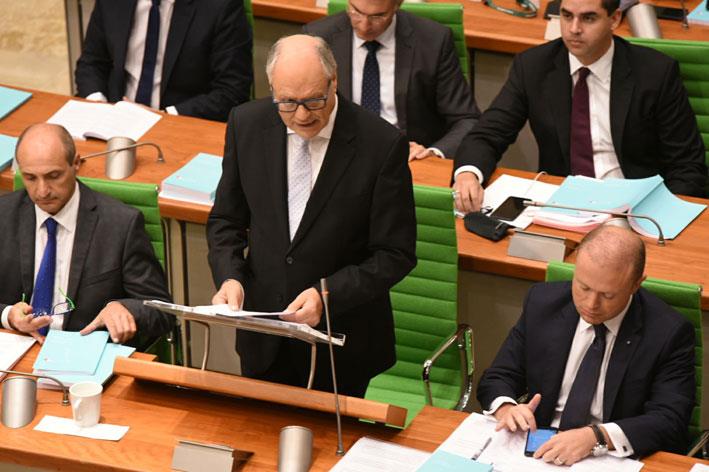
20.24 The government plans to come up with its first strategic programme for the integration of migrants in 2018.
20.23 The government will ensure the success of the Valletta 18 project, as the capital city is set to take over the title of European Capital of Culture.
20.22 A new shooting range will be built and the first phase of the indoor swimming pool in Cottonera will start. A new football ground and pool will be built in Marsascala.
20.21 Mater Dei Hospital will have a new outpatients block, while a new underground parking area is being planned.
20.20 The government will be strengthening the law to cater for technological advances related to IVF.
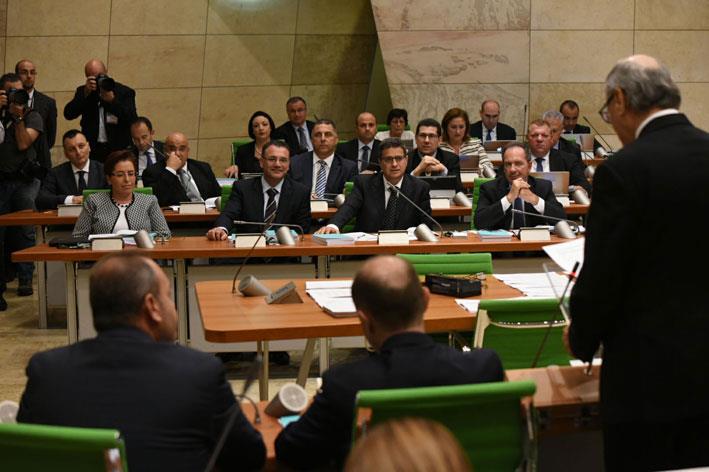
20.19 The government will be investing in two regional health hubs in Kirkop and Paola. Work on the Kirkop hub will start this month.
The government will be working on the setting up of a National Cancer Research Foundation aimed at offering incentives for research. Work on the national cancer plan will be intensified with programmes related to better lifestyles.
The glucose monitoring sticks programme for diabetic patients will be extended.
20.16 People under 40 who continue their post-graduate studies equivalent to MQF7 and 8 will not pay income tax until two years after they finish their course. Some conditions apply.
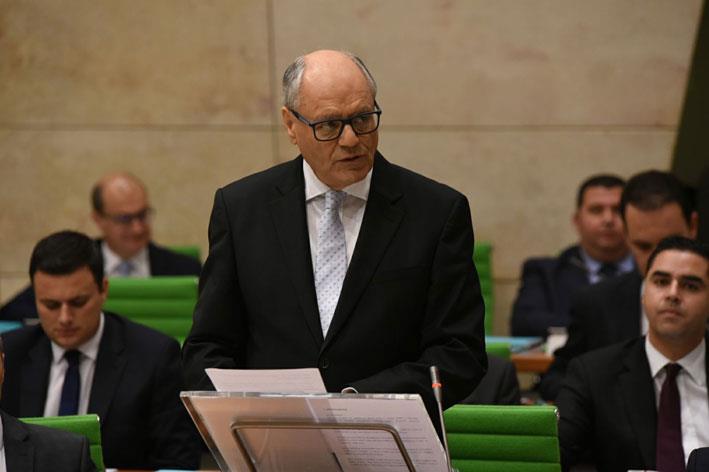
20.14 There will be more investment in the teaching of vocational subjects. It will be extending the one tablet per child initiative.
20.12 The government pledges to reach an agreement with the Malta Union of teachers on new working conditions. A National Board for Obligatory Education will be set up.
Next year, payment for SEC and MATSEC exams will be halved, with the government absorbing the expenses. As from 2019, there will be no payment for these exams.
The government will be building four schools in Marsascala, Qawra, Msida and Victoria.
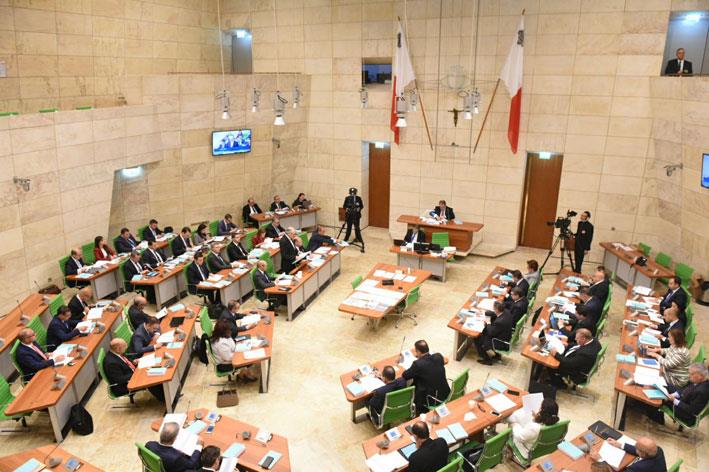
20.09 Two divisions at the Corradino Correctional Facility will be modernised.
20.08 The Department of Civil Protection will be given equipment necessary to deal with emergencies in high-rise buildings. A new fire-fighting unit will be built in Santa Venera. Police vehicles will be modernised and there will be investment in the forensic and cyber crime units.
20.06 A government company incorporating all local wardens will be set up, with an emphasis on education.

20.03 Since 2012, the number of full time Gozitan workers increased by 2,106. The government will be offering more incentives in the private sector, with a reimbursement of 30 per cent of the salary for every worker given a three-year contract, up to a maximum of €6,000.
A master plan for the holistic embellishment of Xlendi and Marsalforn is being drawn up.
Seismic investigations on the Malta-Gozo are still being carried out as the government moves on with its plan to create a permanent link between the two islands.
19.59 The Individual Investor Scheme will be extended after the success of the initial idea.
19.58 There has been a reduction in the prices of 171 medicinal products in the last four years.
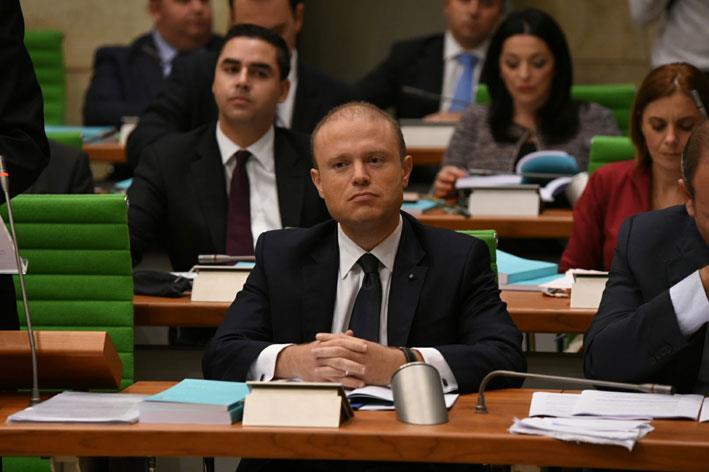
19.56 Malta Enterprise has been involved in 14 projects with foreign investment, 10 expansion projects and 55 projects brought forward by Maltese entrepreneurs. When completed, the projects will generate 1,500 jobs. The investment reaches €200 million.
The Microinvest and BusinessStart initiatives will be strengthened.
19.55 We need to continue working to improve the tourism sector. The MTA will be identifying zone which are not traditionally linked with tourists to regenerate them. The government is committed to bring back Air Malta on its feet.
19.53 A new regulatory base will be introduced next year to strengthen the gaming sector. The project involves a new law regarding the concept of VAT grouping.
19.52 The government is committed to make Malta a centre of excellence in Blockchain.
19.51 Brexit will open up new opportunities for Malta. A working group has been set up to look into ways how companies who would be leaving the UK could set up shop in Malta.

19.49 The government will also continue to invest in reverse osmosis plants, and a new desalination plant will be built at Hondoq ir-Rummien.
19.46 The government will continue to work on the building of a gas pipeline link with the European network. Environmental and technical studies will be carried out in 2018.
19.45 The government will be launching an organisation called Ambjent Malta to take care of the environment.
19.44 The government will hold discussions with the private sector to introduce a system for the return of plastic and glass bottles, with customers getting a refund.
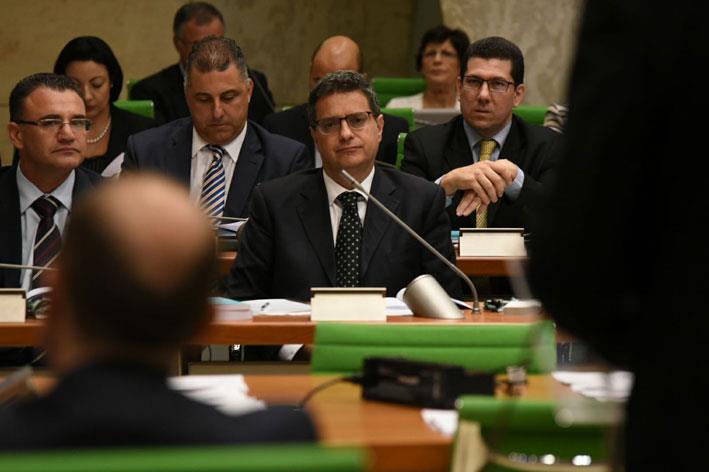
19.43 Educational campaigns aimed at encouraging people to separate waste, the percentage of people doing so is still low. The country will need 80 tomna of land every 10 years if this situation persists.
With this in mind, the government is investing in a €150 million waste to energy plant. The Opposition should change its mind and participate in a special committee that was set up.
19.39 The government will be offering incentives for better use of bikes and electric bikes. VAT on the renting of bikes will be cut down from 18 per cent to 7 per cent. There will be better access for cyclists on urban roads from Valletta to St Julian's and from Mosta to the University. Other incentives will be offered for people buying electric cars, such as no road licence to be paid for the first five years.
19.38 The government will be working to implement free transport for all students as from the next scholastic year.
19.36 The Tal-Linja card will be free of charge for all students aged between 16 and 20.

19.35 Some 160 residential roads will be rebuilt next year. Over two years, the Santa Venera tunnels network will be improved as will be the entrance to Kirkop and the Regional Road.
19.34 The government will be investing €700 million over seven years. Next year will be a learning curve with the participation of social partners, so that the project will kick-start in 2019. A new agency will be set up to take care of the infrastructure, including the maintenance of existing roads.
19.31 One cannot expect that traffic problems will be solved with investment on the roads, irrespective of the amount of money that is spent. Traffic issues have grown because of more people depending on the use of their private car because public transport was not reliable. The government will be tackling the issue in the medium and long term.
19.28 Duty paid on property bought in Gozo will remain at two per cent instead of five per cent for another year.
19.26 More than 11,300 properties were sold under the first time buyers scheme, with no duty paid on the first €150,000 spent. This will be extended for another year.
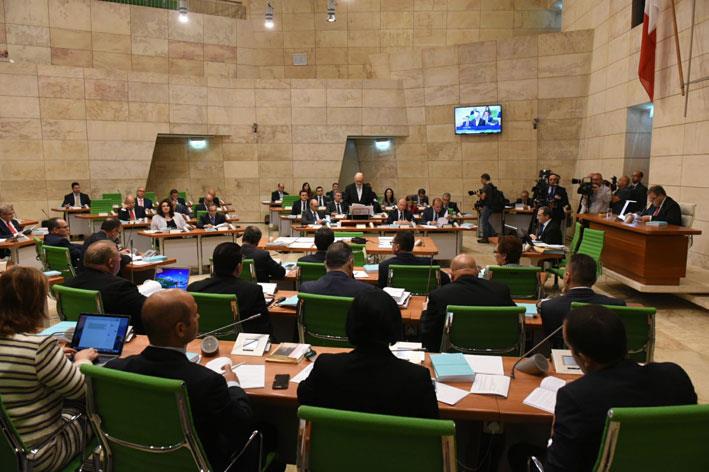
The government will be introducing a scheme for second-time buyers, with people wanting to move out to a smaller or bigger home depending on the circumstances. The duty paid will be reduced by up to €3,000. If the buyer is disabled, the reduction will go up to a maximum of €5,000.
19.23 The government will be publishing a white paper to discuss renting of houses, and plans to find a balance of the needs of the owners of homes who rent out their property, and the people who rent them.
19.21 The Housing Authority will be spending €16 million to install lifts in 109 apartment blocks owned by the government.
19.20 Elderly people who move to a residential home will have the pension cut by 60 per cent instead of 80 per cent if they give up thei home they would be renting from the government.
19.17 The Housing Authority will be issuing a scheme to offer financial assistance to a maximum of €25,000 to carry out repair works in abandoned houses. Owners will be required to rent the premises at favourable rates for the following 10 years. The offer will be open to the first 100 applicants.

19.15 During 2017 a project worth €50 million was started to build 700 units for social housing purposes. Other measures were introduced to help people rent their place of residence, and the thresholds will be widened further for more people to benefit from government assistance.
19.12 Three new homes for disabled people will be opened next year.
Facilities at St Vincent de Paul will be improved.
19.11 Foster care allowance will rise from €70 a week to €100 a week.
Drug addicts allowance will go up from €30 to €40 a week.

19.09 The government will be continue to give the orphan allowance to children who lose their parents irrespective of whether they are in employment or not, until they reach 21 years of age.
19.08 The government will be reimbursing to a maximum of €10,000 to couples who go abroad for adoption purposes.
19.06 The in-work benefit for couples with one wage earner will go up from €350 to €450 for every child.
Some 3,000 benefited from tapering of social benefits. As from next year, the waiting time will be reduced from two to one year.
19.04 Government Savings Bonds 62 + will continue to be issued next year. An ex-gratia payment will be given to drivers who bought their care in 2007.
19.02 A fund was created in 2017 to compensate for injustices on the workplace made in past years. Some €11 million were given out to 6,000 beneficiaries. Next year, €10.5 million will be allocated for this exercise.
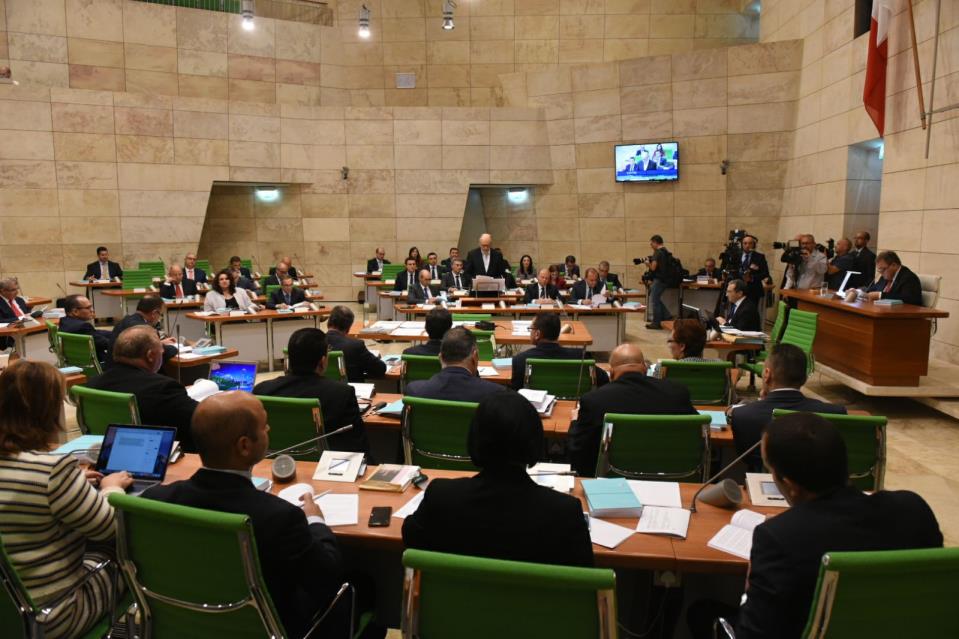
19.01 In 2017, 22,000 pensioners benefited from an income tax reduction, while 9,000 pensioners stopped paying tax. The measure will continue next year as planned and the amount of income not taxed will grow to €13,000.
Service pensions will rise by €200 and the €300 grant for persons over 75 years of age who still reside in their home will be given again.
18.59 For two years in a row, in 2016 and 2016 several measures were introduced to help pensioners. Pensions will be increased for the third year running, of €2 per week. Some 90,000 pensioners will benefit for a total of €9 million.
In 2017, 22,000 pensioners benefited from an income tax reduction, while 9,000 pensioners stopped paying tax. The measure will continue next year as planned and the amount of income not taxed will grow to €13,000.
18.58 The government will continue to reduce tax on work. Workers who earn less than €60,000 will be receiving a one-time cheque of between €40 and €68, depending on the income tax paid. This measure will cost the government €10.6 million, and 200,000 persons will benefit.

18.55 The cost of living adjustment will be €1.75 per week.
The government has committed itself to give back extra leave to workers for public holidays falling on a weekend. The first step in this direction is an additional day of leave to all workers (from 24 to 25 days). Discussions are ongoing with social partners.
The minimum wage law is aimed to improve the living conditions of the workers and their families. The agreement reached last year stipulates that workers on the minimum wage benefit from a €3 increase in their second and third year of employment. The agreement also lays down a supplement linked with the COLA.
18.53 In 2018, the surplus will be of 0.5 per cent while the national debt will decrease to 50.8 per cent of GDP.
No new taxes will be announced in this budget, and existing direct or indirect taxes will not be increased. This has never happened in a post-election budget.

18.51 The International Monetary Fund estimates a global economic growth of 3.6 per cent in 2018. Advanced countries are expected to grow 1.8 per cent, while emerging countries are forecast to grow by 4.8 per cent. The EU is estimating a 1.8 growth.
The Maltese economy is however expected to grow by 5.6 per cent in real terms and 7.6 per cent in nominal terms. Private consumption will go up by 4.1 per cent, while there will be a 3.8 per cent increase in employment and a 4.2 percent unemployment rate. It is estimated that there will be a 7.8 per cent increase in investment and an inflation of 1.5 per cent.onomy is however expected to grow by 5.6 per cent in real terms and 7.6 per cent in nominal terms. Private consumption will go up by 4.1 per cent, while there will be a 3.8 per cent increase in employment and a 4.2 percent unemployment rate. It is estimated that there will be a 7.8 per cent increase in investment and an inflation of 1.5 per cent.
Exports will grow 2.5 per cent.
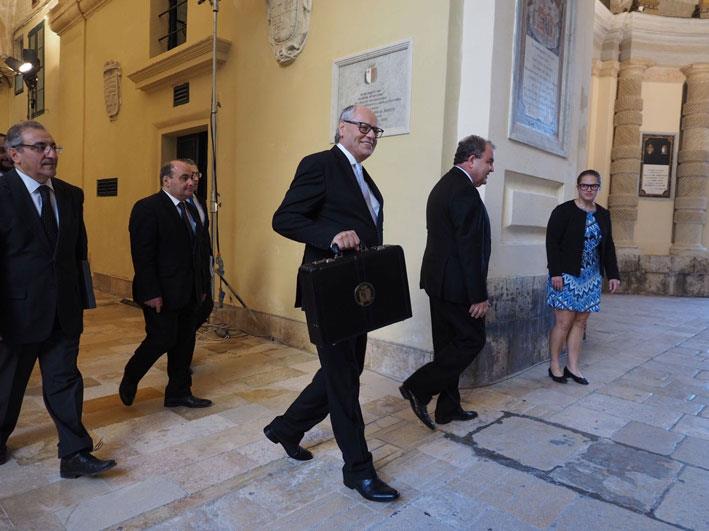
18.50 In 2012, the national debt was nearly 70 per cent of GDP. The aim was for the debt to fall to 60 per cent between 2013 and 2018. Although the previous legislature was one year shorter, this aim was achieved last year as the debt was 57.6 per cent of GDP.
18.49 The number of tourists who visited the country reached two million in 2016. In the first eight months of this year, the number has reached 1.5 million, a 17.6 per cent increase. €1.3 billion were spent by tourists in Malta.
Malta improved its competitiveness as reflected in the Global Competitiveness Index of the World Economic Forum. Malta is now in 37th place, up three places.
Malta has overcome the Excessive Deficit Procedure, and Malta ended 2016 with a surplus of one per cent of the GDP, which means more than €100 million in surplus. For the second year running the country will end up with a surplus.
18.48 The rate of inflation was 1.0 per cent in 2016 according to the Harmonised Index of Consumer Prices and 1.06 per cent according to the Retail Price Index.
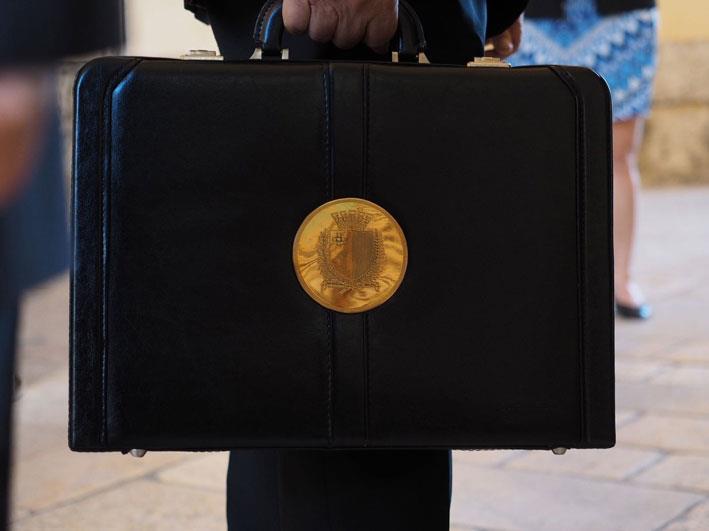
Export of goods and services went up by 3.5 per cent in 2016 and 2.6 per cent in the first half of 2017.
18.46 In the second quarter of this year the total number of jobs increased by 2.5 per cent over the same period last year; the number of women in employment rose by 3.1 per cent.
Unemployment fell to 4.1 per cent and unemployment among young people dropped to 10.6 per cent. The number of people registering for work fell to below 2,500 in August.
The private sector remained the main column of the employment sector. In March this year, the total increase in employment was of 9,512, with 8,500 in the private sector. The largest increases were registered in the professional, technical, scientific and administrative sectors.
18.44 During 2016, the economy grew by 5.5 per cent in real terms while in the first six months it grew by 6.3 per cent, much better than the 2.2 per cent registered in the EU.
Private consumption grew by 4.4 per cent in the first six months of 2017. There was an increase of €246 million in salaries and profits for companies increased by €468 million.
The employment sector in 2016 remained healthy, with a 3.3 per cent increase in employment and a record low of 4.7 per cent unemployment.

18.42 The number of people living in poverty dropped by 9,000, and the average income of Maltese families increased. The number of people who cannot make ends meet fell from 17 per cent in 2012 to 6.6 per cent this year.
This is all a result of the government’s economic policies, helped by investment in infrastructure, energy and waste management.
18.41 The number of people relying on social services, including single parents, is 3,000 less than there were in March 2013. The number of people on unemployment assistance is 3,500 less than it was in March 2013.
In the first 100 days of this legislature, we had an upgrade from Fitch Ratings, DBRS and Standard and Poors.
In the first 100 days, we had the biggest economic growth and the biggest employment growth in the EU.
18.40 We have moved from a deficit of nearly €300 million in 2012 to a surplus of €100 million in 2016, and we will reach another surplus this year.
Today we have some 5,000 fewer persons registering for work when compared to 2013. There are 22,000 more employees than there were at the start of the previous legislature.
Today we have 11,000 more women working when compared to 2013.
Workers in the private sector amount to 28,000 more than there were at end 2012.